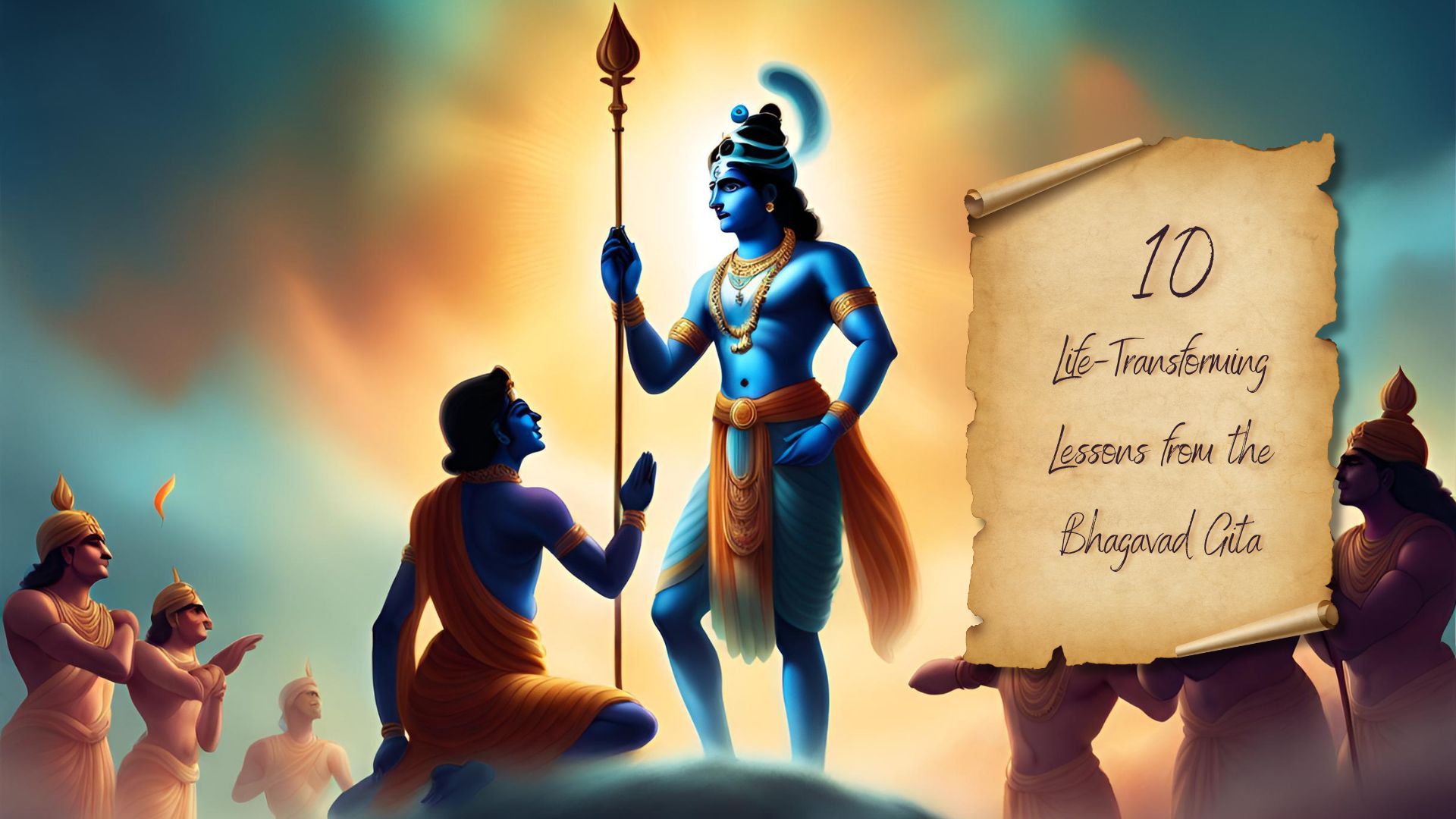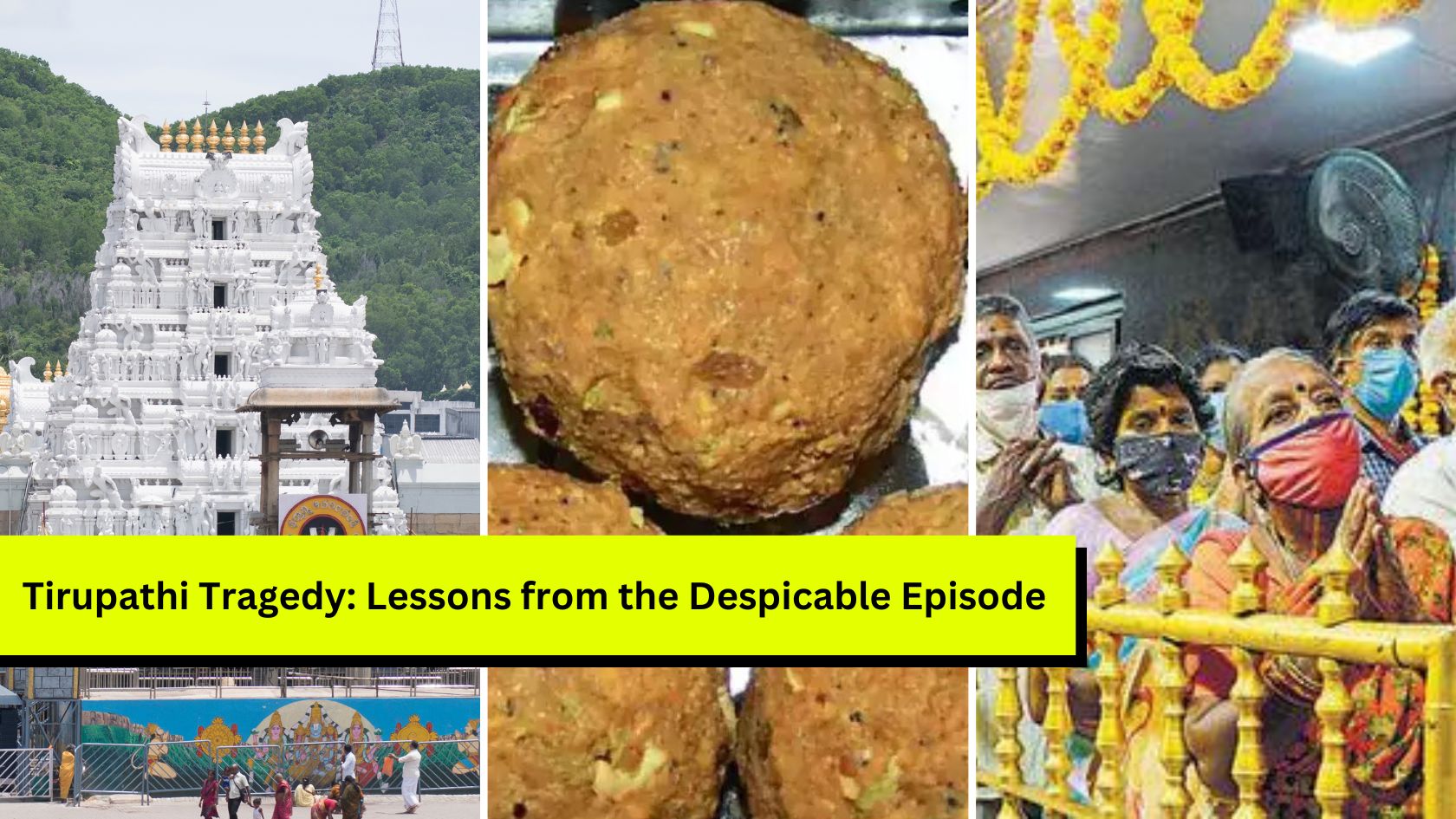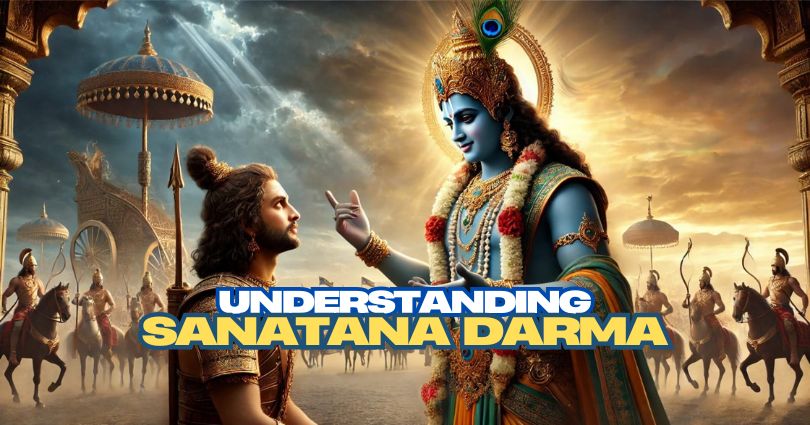
In the fast-paced world we live in today, it's easy to get caught up in the chaos of daily life. But it's equally important to take a step back and draw inspiration from the ancient legends that have stood the test of time. The Bhagavad Gita, a sacred scripture from the Indian epic Mahabharata, offers profound insights into life, duty, and spirituality. As we delve into its timeless wisdom, let's journey through ten of its sayings in Sanskrit, accompanied by their English transliteration, meaning, and narratives from the Mahabharata.
1. Saying (Sanskrit): "कर्मण्येवाधिकारस्ते मा फलेषु कदाचन।"
Transliteration: "Karmanye vadhikaraste ma phaleshu kadachana."
Meaning: You have the right to perform your duties, but never to the fruits of your actions.
In the midst of the Kurukshetra battlefield, Arjuna, the great warrior, was overwhelmed by doubt and sorrow. Lord Krishna reminded him that he should focus on his duty as a warrior and not be attached to the outcome. This teaching reminds us to give our best without worrying excessively about the results.
2. Saying (Sanskrit): "योगस्थः कुरु कर्माणि सङ्गं त्यक्त्वा धनञ्जय।"
Transliteration: "Yogasthah kuru karmani sangam tyaktva dhananjaya."
Meaning: Perform your duties with discipline, abandoning all attachment to success or failure.
As the epic battle raged on, Arjuna followed Lord Krishna's guidance, remaining steadfast in his duty. This saying emphasizes the importance of dedication and perseverance in the face of challenges.
3. Saying (Sanskrit): "विद्याविनयसम्पन्ने ब्राह्मणे गवि हस्तिनि।"
Transliteration: "Vidyavinayasampanne brahmane gavi hastini."
Meaning: In a learned and humble Brahmin, in a cow, and in an elephant, one should see the divine.
During their exile, the Pandavas encountered a learned sage who appeared in the guise of a humble Brahmin. This teaching reminds us that wisdom and humility can be found in unexpected places.
4. Saying (Sanskrit): "अर्जुन उवाच | दृष्ट्वेमं स्वजनं कृष्ण युयुत्सुं समुपस्थितम्।"
Transliteration: "Arjuna uvacha | Drishtvemam swajanam Krishna yuyutsu samupasthitam."
Meaning: Arjuna said: O Krishna, seeing my friends and relatives arrayed for battle, my limbs fail me, and my mouth is parched.
This marks the moment when Arjuna, on the battlefield, was struck by moral and emotional turmoil. Lord Krishna responded with profound guidance, emphasizing the need to face life's challenges with courage.
5. Saying (Sanskrit): "सर्वधर्मान्परित्यज्य मामेकं शरणं व्रज।"
Transliteration: "Sarvadharmān parityajya māmekam śaraṇam vraja."
Meaning: Abandon all varieties of religion and just surrender unto Me.
In the heat of the battle, Arjuna realized that surrendering to Lord Krishna was the ultimate path to salvation. This saying reminds us to seek spiritual guidance and trust in a higher power during challenging times.
6. Saying (Sanskrit): "द्यूतक्रियान्तु युद्धस्य नावा यच्छ्रेयोऽनुपश्यति।"
Transliteration: "Dyūtakriyāntu yuddhasya nāvā yacchreyo'nupaśyati."
Meaning: But one who sees inaction in action and action in inaction, is intelligent among men.
During a game of dice, Yudhishthira, the eldest Pandava, faced a moral dilemma. He chose not to participate in the deceitful game, demonstrating that sometimes, inaction can be the wisest course of action.
7. Saying (Sanskrit): "यदा यदा हि धर्मस्य ग्लानिर्भवति भारत।"
Transliteration: "Yadā yadā hi dharmasya glānir bhavati Bhārata."
Meaning: Whenever there is a decline in righteousness and an increase in unrighteousness, O Arjuna, at that time I manifest myself.
Lord Krishna, the divine charioteer, reminded Arjuna that he incarnates whenever there is a decline in righteousness. This saying inspires us to uphold moral values even in challenging times.
8. Saying (Sanskrit): "यत्र योगेश्वरः कृष्णो यत्र पार्थो धनुर्धरः।"
Transliteration: "Yatra yogeshvarah Krishna yatra Partho dhanurdharah."
Meaning: Wherever there is Lord Krishna, the master of yoga, and wherever there is Arjuna, the supreme archer, there will also certainly be opulence, victory, prosperity, and sound morality.
The divine partnership of Lord Krishna and Arjuna ensured victory and prosperity for the Pandavas. This saying reminds us that success comes when we have the right guidance and skill.
9. Saying (Sanskrit): "अहिंसा परमो धर्मः धर्मिणां च हिंसा तथा।"
Transliteration: "Ahimsa paramo dharmah dharmiṇāṁ cha himsa tathā."
Meaning: Nonviolence is the highest duty, and violence to living beings is the greatest sin.
Throughout the Mahabharata, the importance of nonviolence is emphasized. This saying teaches us the value of compassion and the need to avoid harm to others.
10. Saying (Sanskrit): "उद्धरेदात्मनात्मान ं नात्मानमवसादयेत्।"
Transliteration: "Uddhared ātmanātmānam nātmānam avasādayet."
Meaning: Lift yourself by yourself; do not let yourself sink into despair.
After Arjuna's inner conflict was resolved, he regained his strength and confidence. This saying teaches us the importance of self-motivation and resilience in challenging times.
Incorporating the wisdom of the Bhagavad Gita into our lives can lead to a better and more prosperous existence. These teachings, drawn from the epic Mahabharata, remind us of the enduring power of ancient legends to guide us through the complexities of modern life. As we navigate our own battles, let us draw inspiration from these timeless sayings and embrace their wisdom.
NEXT ARTICLE

The Venkateshwara Swami Temple in Tirupati is among the holiest places in the world for Hindus. Millions of people throng the temple every year to get...

It is a sad reality that our Itihasa and Puranas have been subject to severe distortion over the years. This is not surprising considering how even th...

The holy land of Bharat follows Sanatana Dharma. The word Sanatana Dharma is a Sanskrit word meaning, “Eternal law”. It is the indestructible ultimate...